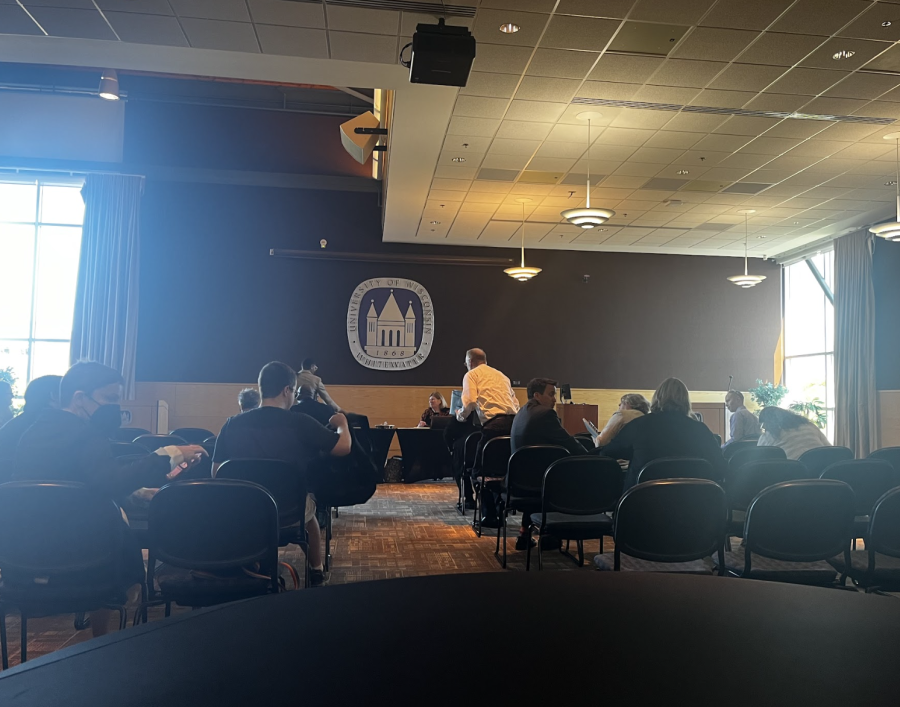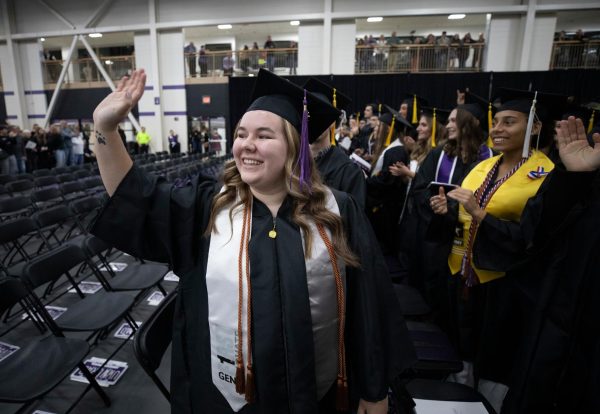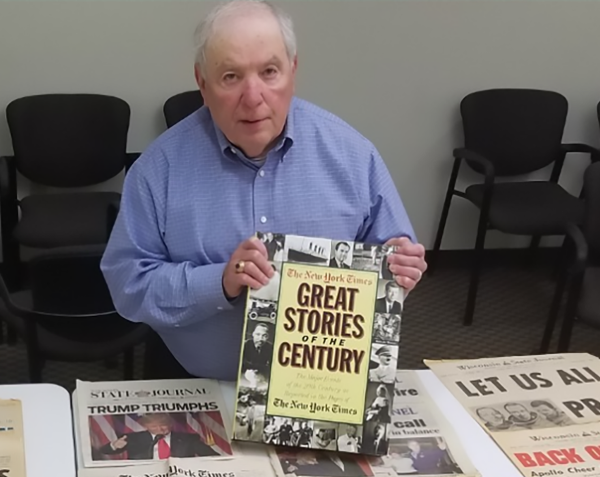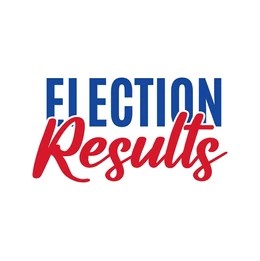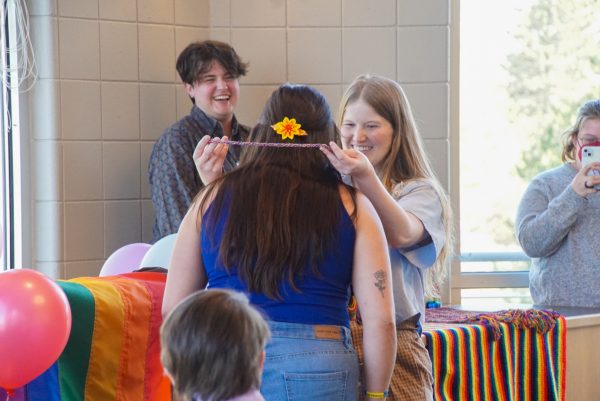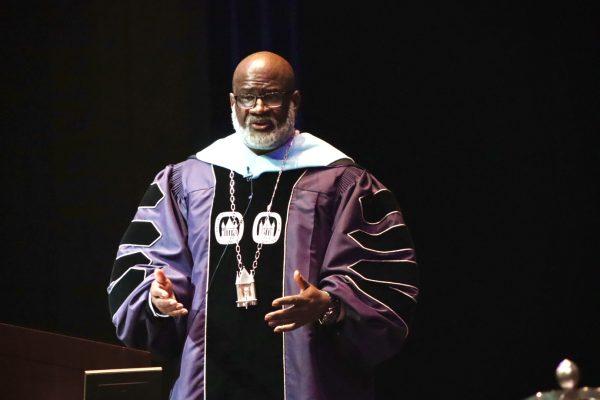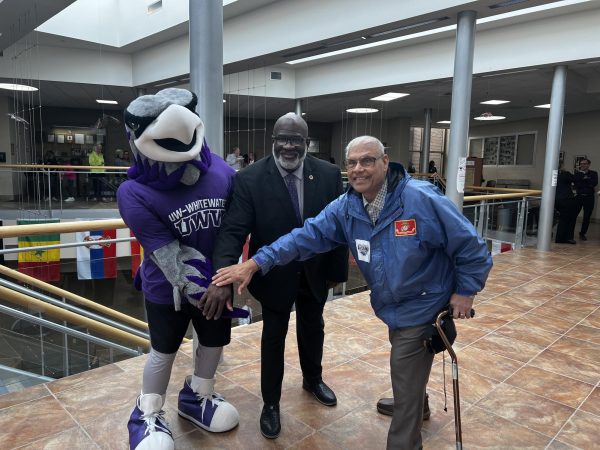Higher Learning Commission Accreditation
Whitewater takes on the the Higher Learning Commission’s Accreditation meetings
Copy of Higher Learning Commission Accreditation Meeting Held In UC.
October 9, 2022
On a bright Monday morning of Oct. 3 in the Old Main Ballroom on the second floor of the University Center, a meeting on this year’s Higher learning Commission Accreditation meeting was held. At these meetings there were representatives from both the Rock County and Whitewater campus in attendance. It consisted of a Q&A format with a table at the front seating two representatives that were from schools outside of Wisconsin. They would ask a question from their report form and then someone in the audience would answer.
Their main goal is to assess the mission statement of University of Whitewater and the Rock County Campus to ensure the students are the most important part of the university. This includes discussing topics such as federal grant programs, transferring credits and federal student aid.
Starting off with the first meeting, a question was asked about how the university is able to keep the students at the Whitewater campus and the Rock County campus on equal footing with each other. The Rock County campus is where the students that aren’t accepted into Whitewater have the option to go to, in order to work on their degree; they can also continue to live on Whitewater’s campus. This has caused the university to create a transportation plan, thus giving the students the ability to travel freely. The main goal of this ‘reaccreditation’ is to make sure that the focus of the university stays with the students and by responding to the issue of transportation and the Rock County campus by keeping the students as the main focus can help with the report.
Along with the topic of accessibility the other main issue discussed within the first meeting was financial aid. This is a heavy topic because there are a lot of students that are first generation students, up to 40% on the Whitewater campus. This means that for many parents/students this is the first time any of this has been discussed. The board of directors at Whitewater have begun to set up online programs to help with this. The online websites don’t only have information on financial aid, but another serious cause for concern at the Whitewater campus is the Title IX.
“Our policy, we review that every summer and do updates with them included in the training. We also mandate the sexual assault training to all our students; with is usually only required with first year students but we find it necessary for our training to have it each year,” said Vicki Schreiber, Title IX representative on the Whitewater Campus.
Title IX is on sexual assault awareness; a major topic that needs to be discussed because it not only affects students but can affect faculty. The Title IX rep explained that the students and faculty will get trained at least once a year. There are various programs that increase students/faculties knowledge. This knowledge is measurable because the cases go up each time that a training is done.
To wrap up the first meeting there was information on the co-curriculum and about how the students are able to become involved and how everything has become a learning curve. This idea of learning in and outside the classroom will help the students with their futures. The board proved that the college was student centered because without these programs the students would struggle harder to find outside jobs without the experience they get.
A follow-up meeting in the afternoon consisted of questions about dual credits, faculty, enrollment management and student learning. Beginning with dual credits, the board discussed when a high school in the surrounding area begins to show interest in a course and then the head of said department will decide. The faculty at the school have the main objective of keeping the students as their main focus and they have proved that; in the response to the questions of the professors and faculties schooling, the university is able to give them a sabbatical, which means that they are able to get some schooling done. This is done to ensure that the faculty are able to provide for the students.
“We are doing a lot that first year and we are doing a lot across the board to help our students graduate,” said Whitewater Dean of Students, Elizabeth Watson.
Along with dual credits and faculty, the enrollment is another big piece that was discussed, this is because the student rate needs to remain high. The retention rate of students is lower than other student populations although there are now many programs in place within the Whitewater and the Rock County campus; these include stem boot camp, the Warhawk emergency and the growth and mindset training. All of these are kept in place so that the students have something to use as a resource to remain on campus and be able to graduate.
Overall, the board of directors that were in attendance to this meeting came prepared for all the questions. The main goal of these meetings are to reaccredit the university while continuing to do the same programs they have kept. These meetings don’t happen frequently and when they do, it is important that the students know that they are the main focus of this school. For more information use this link: https://www.uww.edu/chancellor/hlc


